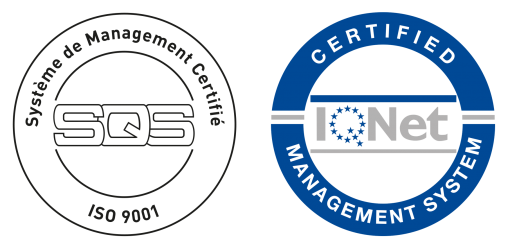PHYNOX - ELGILOY
CoCr20Ni16Mo7
Fe reste Co39-42 Cr18.5-21.5 Ni15-18 Mo6.5-7.5 Mn1-2.5 C0-0.15
| Chemical composition |
|---|
Ni15-18
P0.015 max
FeBAL
Mn1-2.5
Si0.5 max
S0.015 max
Co39-42
C0.15 max
Mo6.5-7.5
Cr19-21
Other1 max
| Alloy name | |
|---|---|
| RLSA no. | 974 |
| EN standard | |
| DIN standard | |
| UNS no.* | R30003/R30008 |
*Unified Numbering System (USA)
Characteristics and main uses
- Exceptional resistance to corrosion, stress corrosion cracking and hydrogen embrittlement.
- Good fatigue strength
- The absence of aging in service.
- The absence of magnetism.
- Ability to be used over a wide range of temperatures, from liquid helium (-269 ° C) to around 500 ° C.
- Perfect passivity in contact with human tissues.
- The ability to increase the strength of parts by hardening after forming, leading to strength levels unattainable with other materials.
- The absence of brittleness at low temperatures (no transition temperature).
- A maximum service temperature of approximately 100 ° C higher than for stainless steels.
- Significantly superior corrosion resistance than stainless steels containing molybdenum.
- A very high elastic limit combined with a high elasticity modulus in tension and in torsion, allows the storage and rapid release of large amounts of elastic energy.
PHYNOX often provides the best solution when high mechanical performance is required under severely corrosive service conditions.
Corrosion resistance
- PHYNOX is not sensitive to corrosion by organic acids, it offers perfect resistance to salt spray tests. Its inorganic acidic behavior is much better than that of the best stainless steels.
- In addition, due to its remarkable passivity in contact with human tissue, PHYNOX is used for artificial bone implants (and forged prostheses)
Mechanical characteristic
The mechanical strength of PHYNOX increases with the percentage reduction by cold rolling. Yield strengths greater than 1800 MPa can be achieved in the hardened state.
Superior mechanical properties can perhaps be obtained by aging hardening at 500 ° C. The influence of aging is negligible in the annealing condition, but increases with the rate of strain hardening.
It is possible with this way to achieve tensile strength levels above 2300 MPa.
By combining an appropriate amount of cold working with aging, it is possible to adjust the mechanical properties.
For a given strength level, it is better to use a combination of cold working and age hardening rather than using cold working alone. In this way, the stability of the properties over time is greater.
Main uses
PHYNOX finds numerous applications in watch making, surgical implants, metrology, electronics and aeronautical engineering:
- Springs for watch motors.
- Shaped springs (helical, etc…).
- Flexible couplings.
- Electrical and electronic apparatus.
- Equipment for the chemicals and oil & gas industries.
- Aeronautical and aerospace equipment.
- Automotive injection systems.
- Various diaphragms.
- Naval equipment.
- Weaponry.
- Prostheses for osteosynthesis.
- Pacemaker electrodes.
- Special collars for missiles.
- Automotive ABS systems.
- Surgical implants and medical instruments.
- Printer springs.



